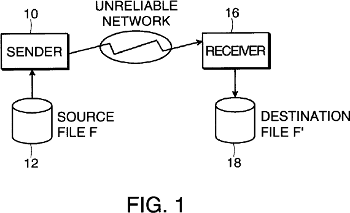SPDY is a neat new protocol and possible contender to replace HTTP – at least in some areas and for some use cases. SPDY has been invented and developed mostly by Google engineers.
SPDY allows better usage of fewer TCP connections (since it sends multiple logical streams over a single physical TCP connection) and it helps clients overcome problems with TCP (like how a new connection starts slowly) while at the same time reducing latency and bandwidth requirements. Very similar to how channels are handled over an SSH connection.
Chrome of course already supports SPDY and Firefox has some early experimental support being worked on.
Of course there are also legitimate criticisms against SPDY as well, including subjects like how it makes caching proxies impossible (because everything goes over SSL), how it makes debugging a lot harder by using compressed headers, how it is impossible to extract just a single header from the stream due to its compression approach and how the compression state buffers make each individual stream use more memory than plain old HTTP (plain TCP) ones.
We can expect SPDY<=>HTTP gateways to appear so that nobody gets locked into either side of these protocols.
SPDY will provide faster transfers. libcurl is currently used for speed reasons in many cases. To me, it makes perfect sense to have libcurl use and try to use SPDY instead of HTTP exactly like how the browsers are starting to do it, so that the libcurl using applications will get their contents transferred faster.
My thinking is that we introduce some new magic option(s) that makes libcurl use SPDY, and for normal easy interface transfers it will remain to use a single connection for each new SPDY transfer, but if you use the multi interface and you enable pipelining you’ll instead make libcurl do multiple transfers over the same single SPDY connection (as long as you speak with the same server and port etc). From an application’s stand-point it shouldn’t make any difference, apart from being faster than otherwise. Just like we want it!
Implementation wise, I would like to use a reliable and efficient third-party library for the actual SPDY implementation. If there doesn’t exist any, we make one and run that one independently. I found libspdy, but I found some concerns about it (no mailing list, looks like one-man project, not C89 compliant, no API docs etc). I mailed the libspdy author, I hoping we’d sort out my doubts and then I’d base my continued work on that library.
After some time Thomas Roth, primary libspdy author, responded and during our subsequent email exchange I’ve gotten a restored faith and belief in this library and its direction. Not only did he fix the C89 compliance pretty quickly, he is also promising rather big changes that are pending to get committed within a week or so.
Comforted by what I’ve learned from Thomas, I’ll wait for his upcoming changes and I’ll join the soon to be created mailing list for the libspdy project and I’ll contribute some ideas and efforts to help shape it into the fine SPDY library we all want. I can only encourage other fellow SPDY library interested persons to do the same!
Updated: Join the SPDY library development





